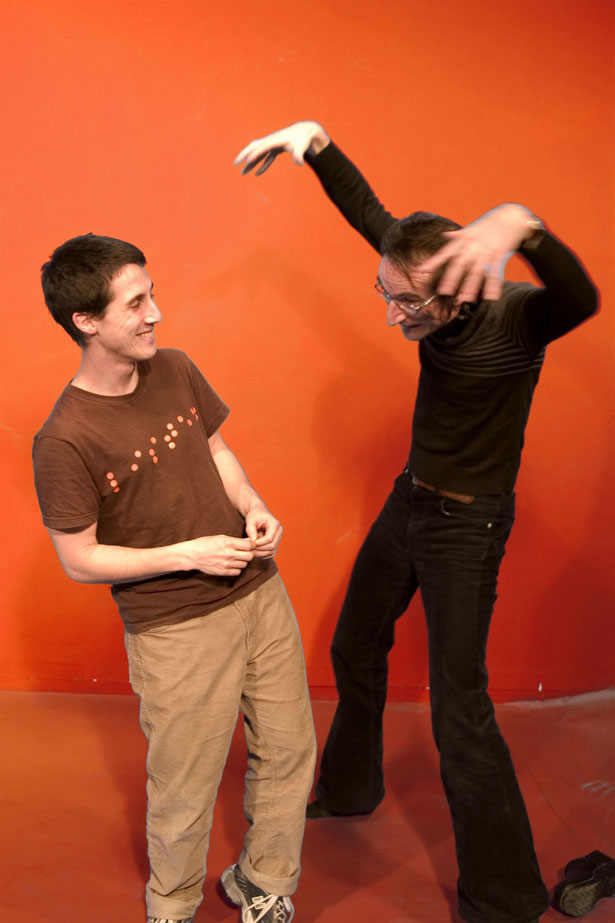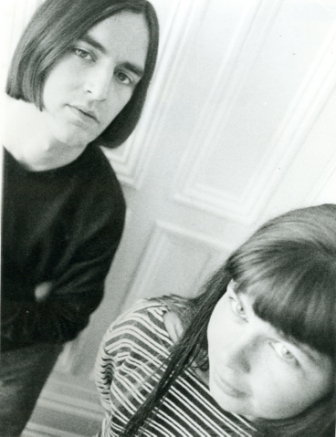Even at a very young age, when my parents and I read stories together, I understood the meaning of sharing: two separate pairs of hands holding the same book, two separate pairs of ears hearing the same story, two separate pairs of eyes seeing the same pictures. Whatever the book—my book, their book—story time was not my time or their time. It was “our” time. The association of books and sharing has stayed with me as I’ve grown and I’ve come to the realization that books are not meant to be kept forever. Once they’re read, they’re to be passed along or forever borrowed, in hopes that whoever gets the book next gains the same appreciation for the story as its previous holder.
Like the stories that were read to me or the books I was given and later read, there is something strikingly similar about the Books’ music that can be directly associated with “sharing.” It is a compelling and entirely appropriate word for the New York–based duo, multi-instrumentalist/singer Nick Zammuto and cellist Paul de Jong, which stemmed from a common interest the pair realized they had when they were introduced to each other by a friend in 2000.
“I noticed this huge stack of mini discs on [de Jong’s] wall—this primordial collection of sample material,” says Zammuto. “He would just record as inspiration. I was doing the same thing, but more home recording with my family and friends.”
Zammuto and de Jong came from different musical backgrounds, but it was their mutual appreciation for sampled and found sound from various audio media, self-recorded field recordings, sounds around the home, and overheard conversations and confessions that brought them together. Their acoustically rich, pleasant, subtle, sliced-and-diced compositions, made up of guitar, banjo, bass, and cello, are layered with sparing, electronically manipulated half-spoken vocals and recorded/sampled sound bites collected over the years by Zammuto and de Jong. These found sounds, as obtuse or random as they can be at times, are meant to create moments—moments that trigger a response of varying emotions, from comforting happiness to isolated sadness.
“It’s a feeling of discovery—a feeling that this has to be heard,” says Zammuto, when asked about how he feels when he discovers a particular sound source. “Sometimes it makes me sigh, sometimes it makes me cry, but it has to have this impact that doesn’t wear off.”
On the Books’ three full-length recordings—2002’s Thought for Food, 2004’s The Lemon of Pink, and 2005’s Lost and Safe—their virtuosic, creative vision is clearly defined, but parts of their approach are ever-changing and evolving. As time has gone on, the band has reached for a new elemental focus in their work. Now, on top of working with primarily audio sound clips, the band is taking a stab at another form of media—found video footage—which has been appearing more frequently during their live performances over the last few years, and comes into full sensory overload on their new DVD, Playall.
“We started visiting thrift shops, collecting videotapes. There are so many of them out there,” says Zammuto. “Now’s the time to get them.”
Zammuto likens his obsession with collecting home and commercial videotapes in this DVD age to a time when vinyl collectors had free reign over the surplus of rare, strange, and/or forgotten LPs that people got rid of in favor of compact discs.
“It is a library of American culture,” he says. “They are peculiar tendrils that grow off this culture.”
Playall has 10 songs from The Lemon of Pink and Lost and Safe, as well as four new ones that are streamlined to found video footage. Zammuto describes Playall as neither a soundtrack nor a video, but something in between, where image and sound arrive simultaneously.
“There’s a lot of potential for making this synthetic, where sound and image are connected,” says Zammuto. “It leaves me all open to some subliminal places.”
Pitchfork once described the Books’ music as something that “exists as a self-contained world of its own, one that doesn’t easily lend itself to reinforcing an unrelated image. Their songs are their own little movies.”
It’s as though the Books have finally come full circle in their own unique, profound, and strangely fascinating journey that still has no end. From found sound to found video recovered from a dusty bin, the Books are all about sharing, and they’re not keeping anything to themselves.






